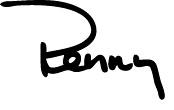Getting back to business in this slower economy, gives us tremendous opportunity to sharpen our tools for business growth. We can use this breathing space in the economy to strengthen our foundation of skills and knowledge to survive and thrive in difficult times. As I always say, you can’t build a castle on quicksand. Strengthening your foundation will help you make a MINT in this new economy. Here’s how you can make money in this new ecomony:
Mentor – Find and work with a great mentor; someone who has been through tough times before, who can save you from making costly mistakes, and who is where you want to be. We are all in this together, and people are generously willing to help. Ask a mentor for guidance.
Inspiration – Hang out with positive, motivating people who inspire you. Read stories of magnificent accomplishment and those who have beat the odds, not news headlines of doom and gloom. Feed your mind to match your goals to get yourself mentally prepared to be amazing, then take action. Mindset is everything!
Network – Get out there (now a figure of speech) and build relationships. Listen twice as much as you speak, find out what people’s points of pain are and tell them how you can benefit them with service. We are in a “service” economy right now, so rather than approaching ‘sales’, approach ways you can serve people better. You can still make money. Just look at the grocery stores… they’re serving us differently but they’re not giving their food away for free. Your network is your ‘net worth’. Nurture it now. People will value how much you care by checking in with them just to see how they’re doing, and if there’s anything that you can do to help them. I often say, if you’re not appearing, you’re disappearing. Meaning, in the mind of your customers and prospects, if you don’t keep in touch, they might assume that you’ve gone out of business. Relationships are key to long-term clients.
Training – Continue your training and development. We must be constantly learning. Continue to learn about customer service, how to deal with people, relationship strategies, time management, and motivation. If we regularly learn and implement one new idea to become better at what we do; teach our people to become better employees; use this time to digest what we have learned; and implement the strategies required for success, we will be unstoppable and well-polished for the turn of a busier economy. A busier economy means more time spent in the transacting of business, leaving less time for the upgrading of skills.
Find a Mentor (or be one), seek Inspiration by surrounding yourself with positive and successful people, Network to build your business opportunities and Train, Train, Train.
Best wishes for earning your MINT, and if you can’t find your way, contact me and we can dig in to build your greatest castle together.
Founder of PLAY NICE in the Sandbox Training and Conflict Resolution
Author of Give and Be Rich – Tapping the Circle of Abundance
p.s. This entire Leadership Tip was repurposed with a few tweaks from 2009. We had a recession back then too, and we bounced back. These last two excerpts are timeless motivation. It’s so interesting how relevant this same text is for us right now in May 2020.
According to the Government of Canada’s publication, Knowledge Matters: Skills and Learning For Canadians, “Countries that succeed in the 21st century will be those with citizens who are creative, adaptable and skilled. The so-called ‘new economy’ is demanding new things from us. The need for ingenuity, creativity and hard work has not changed. How we do our work has. Today’s workplace requires higher levels of education and skills. The equipment we use to do our jobs has also changed. Teachers, police officers, forestry workers and company presidents alike use increasingly sophisticated information technology to do their work”. It is important for companies to continuously assess their commitment to training. Companies should evaluate their training commitment. Evidence suggests that training provided by corporations can make a difference in employee performance and ultimately corporate profitability.
According to an article by Chris Taylor in T+D Magazine, “Recession Survivors: Training to the Rescue,” (October 2003), a knowledgeable workforce may ensure a company’s survival. The article profiles four companies that survived the economic impact of September 11, 2001, and a business climate marked by recession and corporate scandals. These companies—Southwest Airlines, Viacom, Dell, and Guardsmark—all consider employee training an investment in company growth and stability. Rather than cutting back their training budgets during hard times, these companies chose to invest in the development of new skills and knowledge within their workforce. In doing so, these companies showed a commitment to their workers and gave them the educational background necessary to increase productivity and effectiveness in their respective markets. The workers, in turn, supported these companies and ensured their survival through a difficult chapter of American business history.
http://careers.stateuniversity.com/pages/852/Trends-in-Training-Development.html




